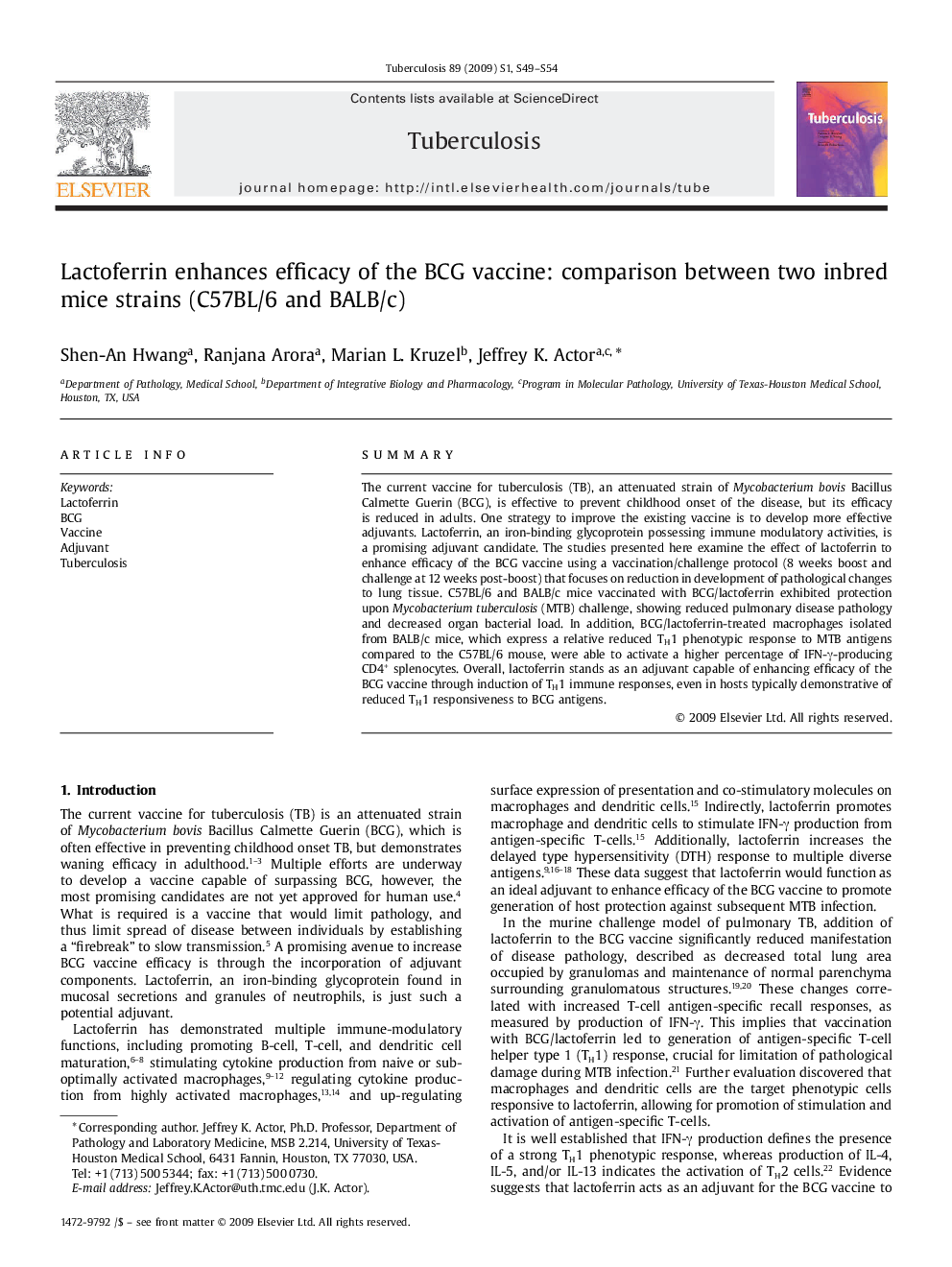| Article ID | Journal | Published Year | Pages | File Type |
|---|---|---|---|---|
| 2401820 | Tuberculosis | 2009 | 6 Pages |
Abstract
The current vaccine for tuberculosis (TB), an attenuated strain of Mycobacterium bovis Bacillus Calmette Guerin (BCG), is effective to prevent childhood onset of the disease, but its efficacy is reduced in adults. One strategy to improve the existing vaccine is to develop more effective adjuvants. Lactoferrin, an iron-binding glycoprotein possessing immune modulatory activities, is a promising adjuvant candidate. The studies presented here examine the effect of lactoferrin to enhance efficacy of the BCG vaccine using a vaccination/challenge protocol (8 weeks boost and challenge at 12 weeks post-boost) that focuses on reduction in development of pathological changes to lung tissue. C57BL/6 and BALB/c mice vaccinated with BCG/lactoferrin exhibited protection upon Mycobacterium tuberculosis (MTB) challenge, showing reduced pulmonary disease pathology and decreased organ bacterial load. In addition, BCG/lactoferrin-treated macrophages isolated from BALB/c mice, which express a relative reduced TH1 phenotypic response to MTB antigens compared to the C57BL/6 mouse, were able to activate a higher percentage of IFN-γ-producing CD4+ splenocytes. Overall, lactoferrin stands as an adjuvant capable of enhancing efficacy of the BCG vaccine through induction of TH1 immune responses, even in hosts typically demonstrative of reduced TH1 responsiveness to BCG antigens.
Related Topics
Life Sciences
Immunology and Microbiology
Applied Microbiology and Biotechnology
Authors
Shen-An Hwang, Ranjana Arora, Marian L. Kruzel, Jeffrey K. Actor,
